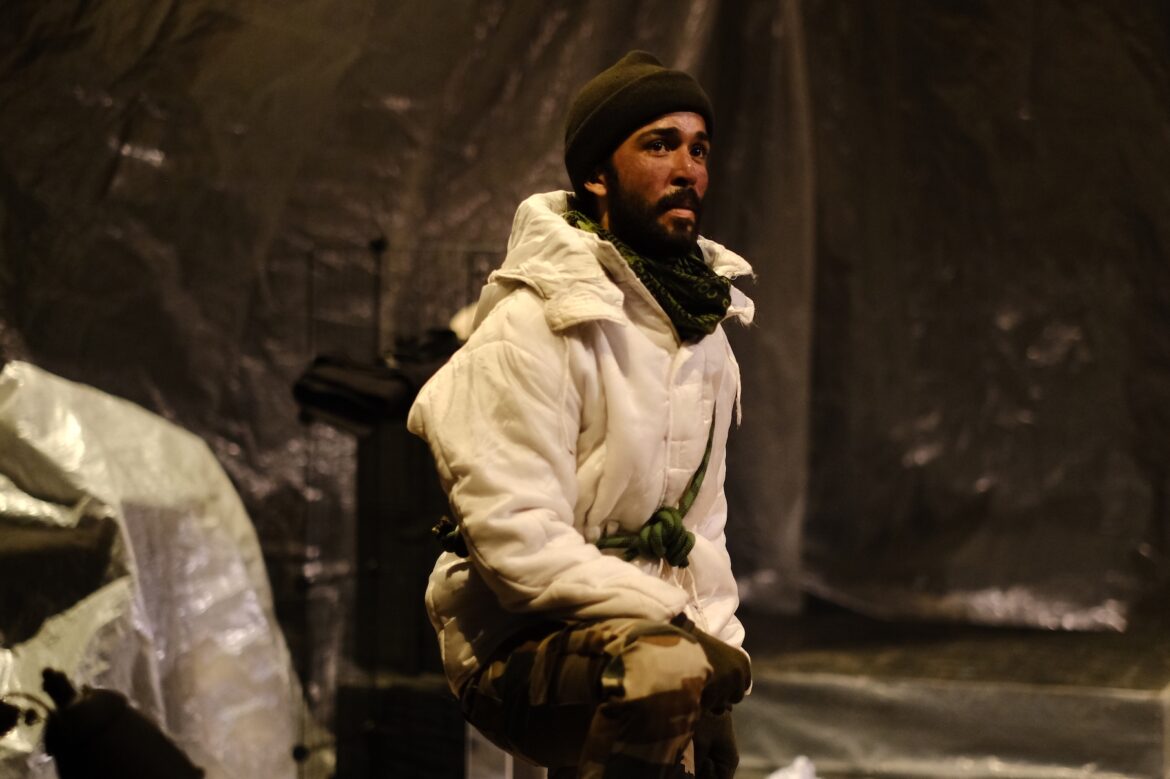Frozen Borders:
What are the odds that the disputed Siachen region between India and Pakistan would inspire two playwrights from both sides of the border—Aditya Rawal and Anwar Maqsood.
The bleak, snow covered, uninhabitable place with minus 50 temperature, becomes, in two plays– both called Siachen— a symbol for human suffering and the futility of war.
Aditya Rawal’s Siachen is set in a No Exit (Sartre) like hell, where Lieutenant Tanmay Bose (Zahan Kapoor) is trapped with his small company, defending a post nobody really cares about. One of the men (Rohit Mehra) has already been placed in a body bag. The communication link with the base has snapped after a blizzard, and they are fast losing hope of rescue. At that altitude breathing difficult, brain fog and hallucinations go along with frostbite and extremities turning blue with cold. Movies tend to romanticize the bravery of soldiers, but nobody understands the everyday physical and mental torments of protecting the border. Rawal has tried to portray that.
With hope fast depleting, the interaction between Tanmay and Lance Naik Anthony D’Souza (Chittransh Pawar) gets increasingly hostile, as Subedar Shabbir Naqvi (Niketan Sharma) tries to keep the peace. He is also the one who has an unwavering sense of duty. Tanmay joined the armed forces because he was expected to by his Brigadier father.
Their secrets, fears, patriotism come across in Siachen, directed by Makrand Deshpande, whose last play, Sainik, was also about a soldier. The actors all step up to the plate, and convey the pathos and dark humour required by the text; Kapoor’s oxygen-deprived wheeze is goosebump inducing. Shaira Kapoor’s set and Vaibhav Jadhav’s sound design bring out the claustrophobia and terror the men go through. It’s only in the movies that soldiers are totally fearless and infallible.
In a review of Maqsood’s 2016 play in Dawn (Pakistani publication), Peerzaada Salman wrote, “Siachen, as can be guessed from the title, pays tribute to the Pakistani soldiers who have been positioned on a glacier, which is one of the longest in the Karakoram, to keep a check on enemy forces…Still the core of the story deals as much with psychological hardships, caused by missing your loved ones by leaving the cosy confines of homes, as with physical toil fighting a battle at such high altitude.”
If the two playwrights compared notes, they would probably realise they are talking of the same issue , just from opposing sides of the border. When nations go to war, the ones who are crushed between the giant wheels of political maneuvering are the innocents—not just the soldiers putting their lives on the line, but also their families, and civilians living in combat zones. (In SIACHEN, the women left behind are played by Seerat Mast.)
Rawal’s play does not really say anything new, but he makes a strong point about the absurdity of war and the sacrifices soldiers willingly make; as a character says, nobody weeps for soldiers, because they are expected to die. The message cannot be repeated often enough, and through every medium possible. Peace should be non-negotiable.
(This piece first appeared in mumbaitheatreguide.com)

